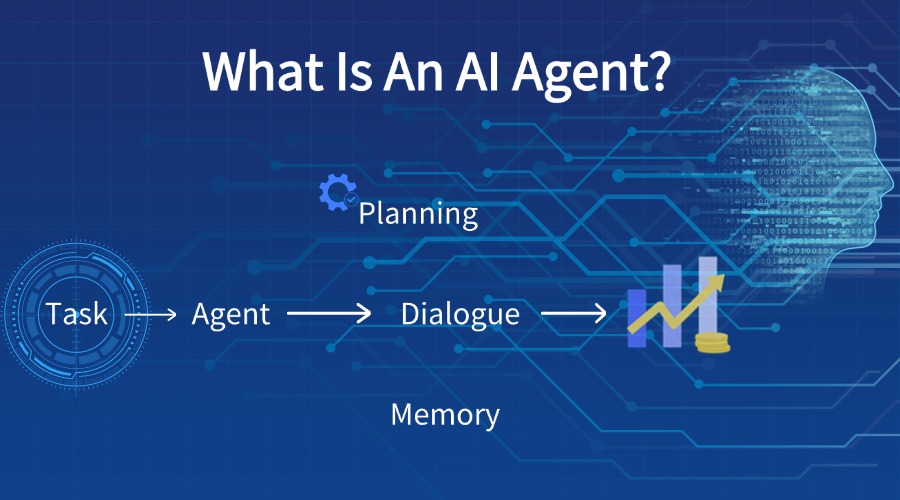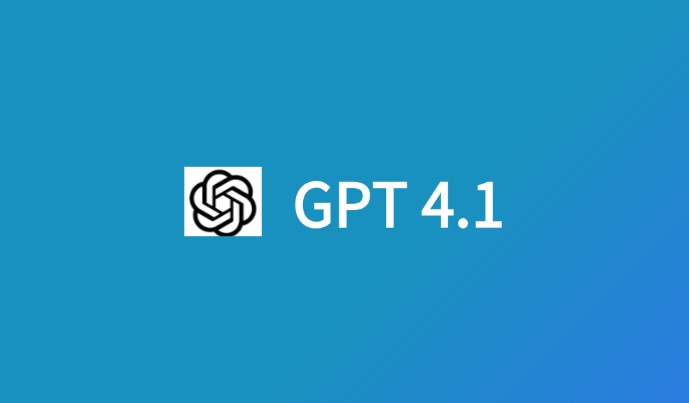Published on April 9, 2025, by Nancy, AI Technology Enthusiast and Researcher
Introduction to AI Agents: What Are They and Why Do They Matter?
AI agents are transforming the way we interact with technology, enabling machines to act intelligently and autonomously in diverse environments. An AI agent is a software program or system that uses artificial intelligence to perform tasks on behalf of a user, perceiving its surroundings, making decisions, and taking actions to achieve specific goals. From powering virtual assistants to managing complex business workflows, AI agents are redefining productivity. Their ability to learn, adapt, and interact makes them invaluable in today’s fast-paced world, where efficiency and accuracy are paramount.

How AI Agents Differ from Other AI Technologies?
AI agents are a subset of artificial intelligence, but they stand out from other AI systems in key ways:
- AI Agents vs. Machine Learning Models: Machine learning models focus on prediction, like forecasting customer churn, while AI agents take actions based on those predictions, such as sending retention offers.
- AI Agents vs. Chatbots: Chatbots are a type of AI agent designed for conversation, but AI agents can handle broader tasks, like data analysis or automation.
- AI Agents vs. Traditional Software: Unlike traditional software with fixed rules, AI agents learn and adapt, such as prioritizing emails based on user behavior.
The defining feature of AI agents is their autonomy and ability to interact with dynamic environments, making them more versatile than other AI technologies.
How Do AI Agents Work? A Step-by-Step Breakdown
AI agents operate through a cycle of perception, reasoning, and action. Here’s a step-by-step look at how they work:
- Perception: AI agents use sensors or data inputs to gather information about their environment. For example, an agent might analyze audio and text from a video to understand its content.
- Reasoning and Decision-Making: The agent processes the input data using algorithms, often powered by machine learning or rule-based systems, to make decisions. It might identify key points in the video and decide how to structure them.
- Action: The agent executes an action to achieve its goal, such as generating a summary or visual output for the user.
- Learning and Adaptation: Many AI agents incorporate feedback loops to improve over time. They learn from past actions and user interactions to refine their performance, making them more effective with each use.
This cycle enables AI agents to handle complex tasks autonomously, from summarizing content to managing customer inquiries.
Types of AI Agents: Exploring Their Categories and Capabilities
AI agents come in various types, each designed for specific tasks and levels of complexity. Here are the main categories:
- Simple Reflex Agents: These agents react to specific stimuli based on predefined rules. For example, a thermostat that adjusts the temperature when it detects a change is a simple reflex agent.
- Model-Based Reflex Agents: These agents maintain an internal model of the world to make decisions. A self-driving car that adjusts its speed based on traffic conditions is an example.
- Goal-Based Agents: These agents work toward achieving specific goals. For instance, a navigation app that finds the fastest route to your destination is a goal-based agent.
- Utility-Based Agents: These agents evaluate multiple options to maximize a “utility” or benefit. A recommendation system on a streaming platform that suggests movies based on your preferences is a utility-based agent.
- Learning Agents: These agents improve over time by learning from experience. For example, an agent might refine its ability to summarize content based on user feedback.
Each type of AI agent has unique capabilities, making them suitable for different applications, from basic automation to advanced decision-making.
Key Features and Components of AI Agents
AI agents are built with several core components that enable their functionality:
- Sensors: For perceiving the environment (e.g., microphones for voice input, APIs for data collection).
- Knowledge Base: A repository of information the agent uses to make decisions (e.g., a database of rules or learned patterns).
- Reasoning Engine: Algorithms that process inputs and determine actions (e.g., machine learning models or rule-based systems).
- Actuators: Mechanisms for taking action (e.g., generating a report or sending a notification).
- Learning Module: For adapting and improving over time (e.g., reinforcement learning to optimize performance).
These components work together to make AI agents intelligent, autonomous, and adaptable to various tasks.
Benefits of AI Agents: Why They’re a Game-Changer
AI agents offer numerous benefits that make them indispensable across industries:
- Automation: They handle repetitive tasks, freeing up human time for more creative work. For example, tools like iWeaver can automate the process of summarizing videos into structured mind maps, saving hours of manual effort.
- Efficiency: AI agents process large volumes of data quickly, enabling faster decision-making.
- Scalability: They can manage growing workloads without a proportional increase in resources.
- Accuracy: AI agents reduce human error by making data-driven decisions.
- Personalization: They tailor experiences to individual users, such as personalized recommendations or customized outputs.
These benefits make AI agents a game-changer for businesses, researchers, and individuals looking to streamline their workflows.
Challenges and Limitations of AI Agents
Despite their advantages, AI agents come with challenges:
- Data Dependency: They require high-quality data to function effectively. Poor data can lead to biased or inaccurate outcomes.
- Ethical Concerns: Autonomous agents raise questions about accountability, especially in critical applications like healthcare or finance.
- Implementation Costs: Developing and deploying AI agents can be expensive, particularly for small businesses.
- Complexity: Advanced agents may require technical expertise to manage and maintain.
Understanding these limitations helps users make informed decisions about adopting AI agents and mitigating potential risks.
Why Businesses Are Adopting AI Agents: The Rise of Agentic AI
Businesses are increasingly turning to AI agents to stay competitive, driven by the rise of “agentic AI”—AI systems that act autonomously to achieve goals. Here’s why:
- Cost Savings: AI agents reduce labor costs by automating tasks like customer support or data analysis.
- Improved Customer Experience: Agents like chatbots provide 24/7 support, enhancing customer satisfaction.
- Data-Driven Insights: They uncover patterns and correlations in data, helping businesses make informed decisions.
- Competitive Advantage: Early adopters gain an edge by leveraging AI agents for innovation and efficiency.
The growing trend of agentic AI reflects a shift toward more autonomous, intelligent systems that can handle complex business challenges.
Real-World Examples of AI Agents in Action
AI agents are already making an impact across industries:
- Customer Service: Chatbots like Zendesk’s Answer Bot handle customer inquiries, resolving issues faster than human agents.
- Healthcare: IBM Watson assists doctors by analyzing medical records and suggesting treatment options.
- Education: AI agents can summarize educational videos into visual study aids, helping students learn more efficiently.
- Automotive: Tesla’s self-driving cars use AI agents to navigate roads and avoid obstacles.
- Research: iWeaver processes multiformat data (documents, videos, links) to recommend analysis models, helping researchers eliminate bias and uncover data correlations.
These examples show how AI agents are transforming workflows and delivering tangible results.
How to Choose the Right AI Agent for Your Needs
Selecting the right AI agent depends on your goals and resources:
- Identify Your Use Case: Are you looking to automate customer support, summarize content, or analyze data? Define your needs clearly.
- Evaluate Features: Look for agents with the right capabilities, such as learning, scalability, or multiformat processing.
- Consider Ease of Use: Choose a tool with an intuitive interface to ensure smooth adoption.
- Assess Costs: Balance the benefits against your budget, starting with free or low-cost options to test the waters.
- Check Integration: Ensure the agent integrates with your existing systems, such as cloud storage or research databases.
By aligning the agent’s capabilities with your needs, you can maximize its value.
The Future of AI Agents: Trends and Predictions
The future of AI agents is bright, with several trends on the horizon:
- Multi-Agent Systems: Agents will collaborate in teams, working together to solve complex problems. For example, iWeaver uses multiple agents to analyze data and recommend optimal research methods.
- Integration with IoT: AI agents will manage smart devices, creating seamless, automated environments.
- Ethical AI Development: Greater focus on transparency and fairness will address ethical concerns.
- Advanced Learning: Agents will become more adaptive, learning from diverse data sources to improve performance.
These trends suggest that AI agents will play an even larger role in shaping technology and society in the coming years.
Unlock Efficiency with AI Agents: Practical Tips to Get Started
Ready to harness the power of AI agents? Here are some practical tips:
- Start Small: Test a free tool to see how AI agents can benefit you, such as one that summarizes content or automates a simple task.
- Define Clear Goals: Set specific objectives, such as summarizing 10 research papers per day.
- Monitor Performance: Track metrics like time saved or accuracy to measure ROI.
- Iterate and Improve: Use feedback to refine how you use the agent, optimizing its output over time.
- Explore Use Cases: Experiment with different applications, from content summarization to data analysis.
These steps will help you integrate AI agents into your workflow and unlock their full potential.
Conclusion: Harnessing the Power of AI Agents for Success
AI agents are revolutionizing the way we work, learn, and innovate. From automating tasks to uncovering data insights, they offer a powerful way to boost efficiency and accuracy. Whether you’re summarizing educational content or analyzing research data to eliminate bias, AI agents can transform your productivity. By understanding their types, benefits, and applications, you can choose the right agent for your needs and stay ahead in a tech-driven world. Ready to get started? Explore AI agent tools today and unlock their efficiency for yourself!



